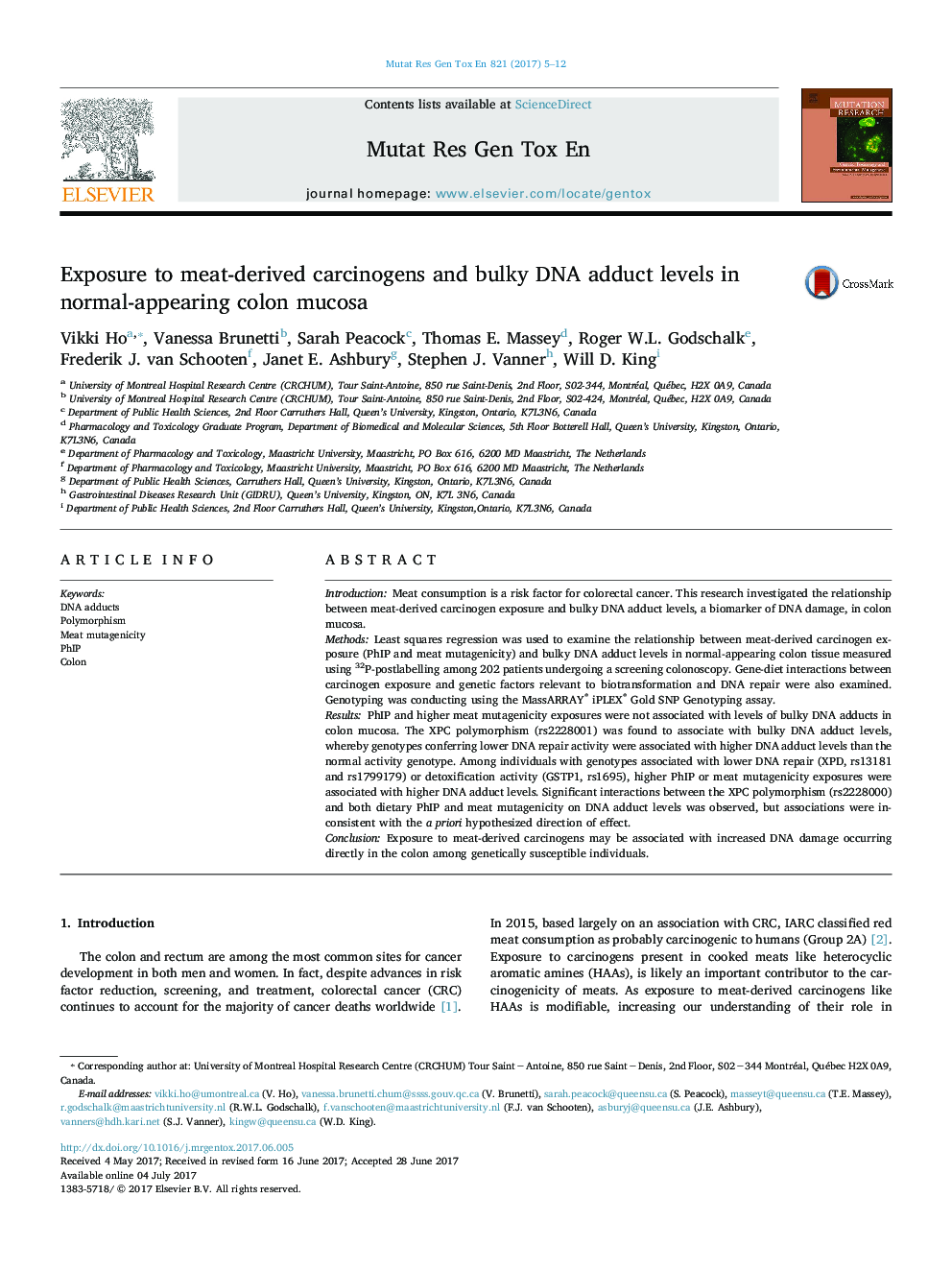| کد مقاله | کد نشریه | سال انتشار | مقاله انگلیسی | نسخه تمام متن |
|---|---|---|---|---|
| 5528795 | 1548550 | 2017 | 8 صفحه PDF | دانلود رایگان |

- Associations between meat-derived carcinogens, genetic factors, and bulky DNA adduct levels in colon was examined.
- Differences in DNA repair capacity, conferred by XPC polymorphism (rs2228001), were associated with DNA adducts in colon.
- The sum of 'at-risk' genotypes were associated with higher bulky DNA adducts in colon.
- Interactions between meat-derived carcinogens and polymorphisms (rs13191, rs1799179 and rs1695) on DNA adducts were found.
- Our results support the role of meat-derived carcinogens and genetic susceptibility in determining bulky DNA adduct levels.
IntroductionMeat consumption is a risk factor for colorectal cancer. This research investigated the relationship between meat-derived carcinogen exposure and bulky DNA adduct levels, a biomarker of DNA damage, in colon mucosa.MethodsLeast squares regression was used to examine the relationship between meat-derived carcinogen exposure (PhIP and meat mutagenicity) and bulky DNA adduct levels in normal-appearing colon tissue measured using 32P-postlabelling among 202 patients undergoing a screening colonoscopy. Gene-diet interactions between carcinogen exposure and genetic factors relevant to biotransformation and DNA repair were also examined. Genotyping was conducting using the MassARRAY® iPLEX® Gold SNP Genotyping assay.ResultsPhIP and higher meat mutagenicity exposures were not associated with levels of bulky DNA adducts in colon mucosa. The XPC polymorphism (rs2228001) was found to associate with bulky DNA adduct levels, whereby genotypes conferring lower DNA repair activity were associated with higher DNA adduct levels than the normal activity genotype. Among individuals with genotypes associated with lower DNA repair (XPD, rs13181 and rs1799179) or detoxification activity (GSTP1, rs1695), higher PhIP or meat mutagenicity exposures were associated with higher DNA adduct levels. Significant interactions between the XPC polymorphism (rs2228000) and both dietary PhIP and meat mutagenicity on DNA adduct levels was observed, but associations were inconsistent with the a priori hypothesized direction of effect.ConclusionExposure to meat-derived carcinogens may be associated with increased DNA damage occurring directly in the colon among genetically susceptible individuals.
Journal: Mutation Research/Genetic Toxicology and Environmental Mutagenesis - Volume 821, September 2017, Pages 5-12